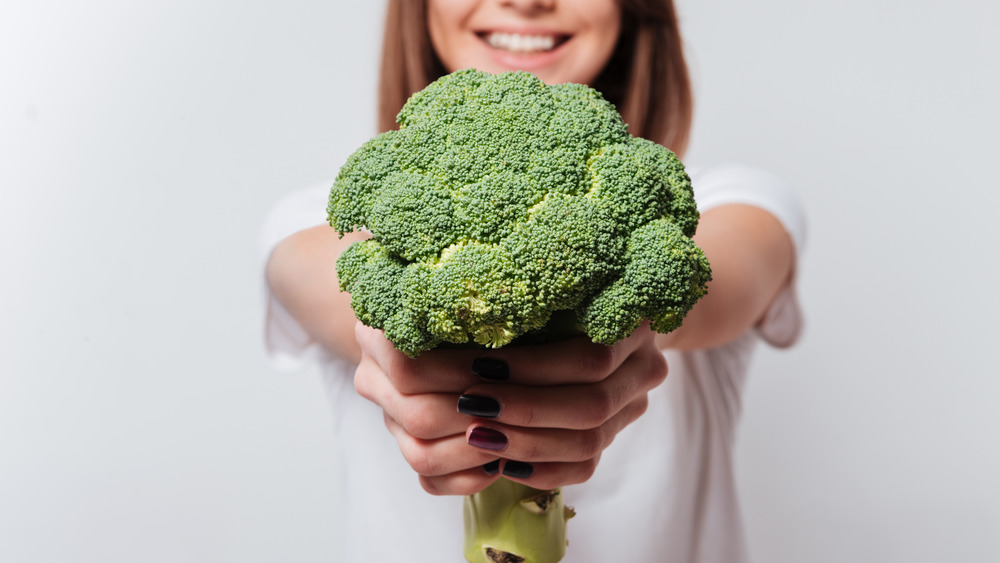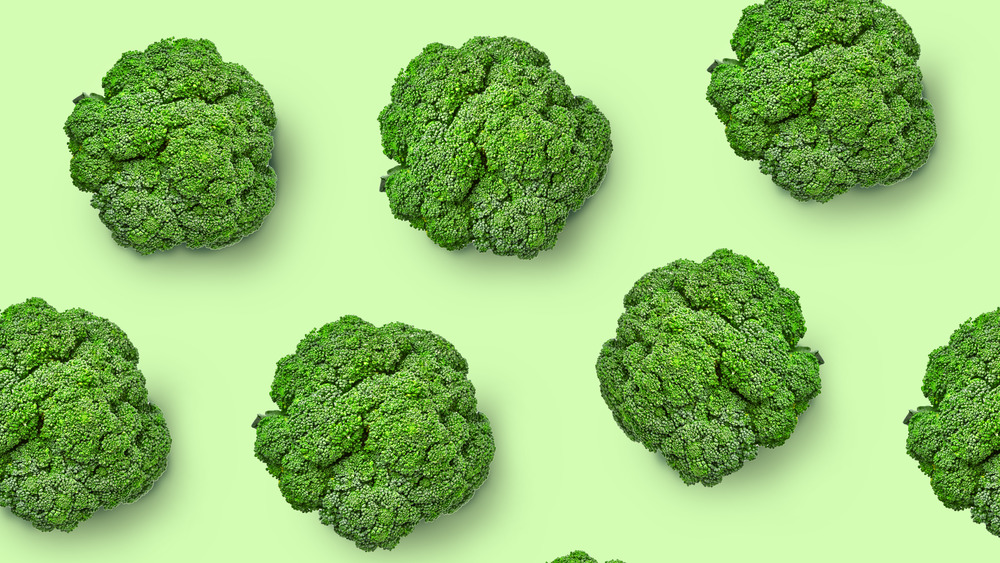When You Eat Broccoli Every Day, This Is What Happens To Your Body
Whether you love its taste, texture, or how it resembles adorable little trees, broccoli is a popular vegetable for good reason. It's great tossed in an omelet with some fresh cheese and herbs in the morning, dipped raw into hummus for the perfect snack, and if you're looking for the perfect side dish, just steam, roast, or grill it with some garlic, sea salt, and EVOO. There are even memes devoted to this veggie's greatness.
But what if you love broccoli so much that you just want to eat it every single day? Wanting to binge on broccoli has to be better than eating a steady diet of potato chips, but can you have too much of a good thing? We posed this question to Kristen Carli, registered dietitian, nutritionist, and owner of Camelback Nutrition & Wellness. "Broccoli is one of the most nutritious foods you could eat!" Carli told Mashed. "This cruciferous vegetable is a great source of vitamin C, vitamin A, vitamin K, folate, calcium, and potassium." Here's how all of those nutrients affect your health.
Broccoli may help you fight off cancer
They say an apple a day keeps the doctor away, but might broccoli keep the oncologist away? According to Carli, perhaps! "Research shows that glucosinolates, which are compounds within many cruciferous vegetables, including broccoli, have cancer-fighting abilities and cardiovascular benefits," Carli said. "High intakes of broccoli are associated with decreased risks of cancers including colorectal, lung, breast, and prostate." This vegetable fends off substances that aren't doing your body any good, she added. "Broccoli also contains compounds that support your body's natural detoxification process. Because of this, broccoli is one of the best foods to eat and should be consumed regularly," Carli explained.
So, are there any downsides to eating broccoli? Only for people who have any iodine deficiency, Carli said. If you don't get enough of this mineral from food and salt in your diet, you could suffer weight gain, exhaustion, and even hair loss, according to Medical News Today. And if that's the case, broccoli might make things worse. "Broccoli and other cruciferous vegetables contain compounds, which when consumed in high amounts, could interfere with thyroid function and block the thyroid's uptake of iodine, but this does not seem to increase the risk of hypothyroidism unless people are already iodine deficient," Carli explained. "For these individuals, it is a good idea to first address iodine deficiency, before consuming an excess of broccoli." A simple urine test will let your doctor know if you are deficient in iodine.

